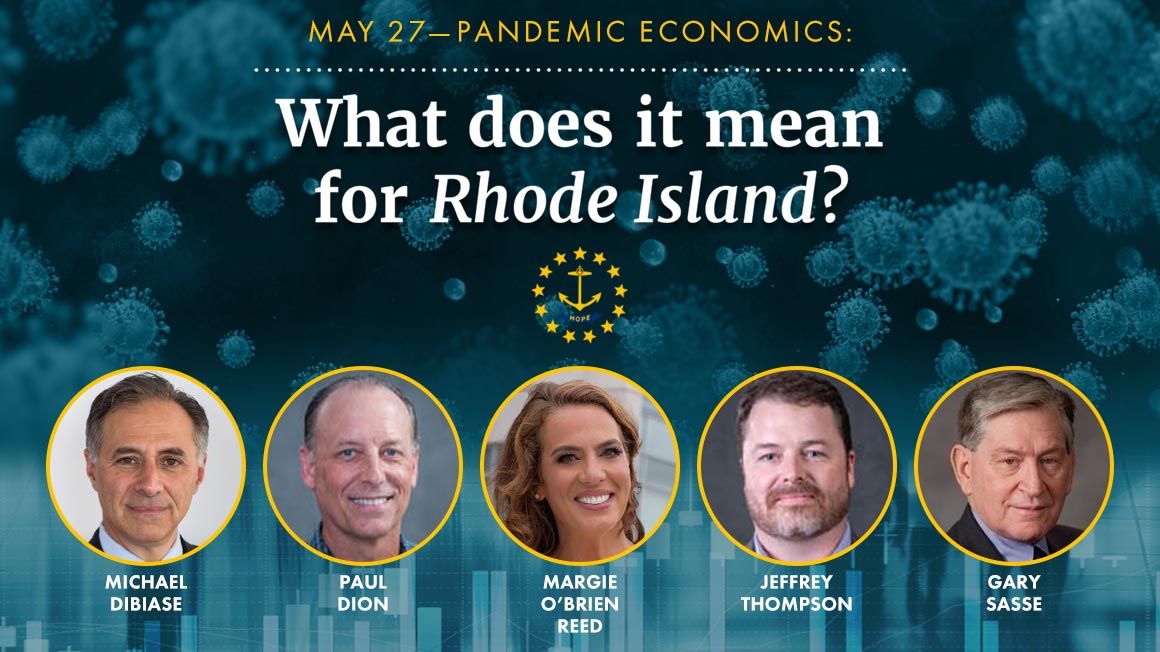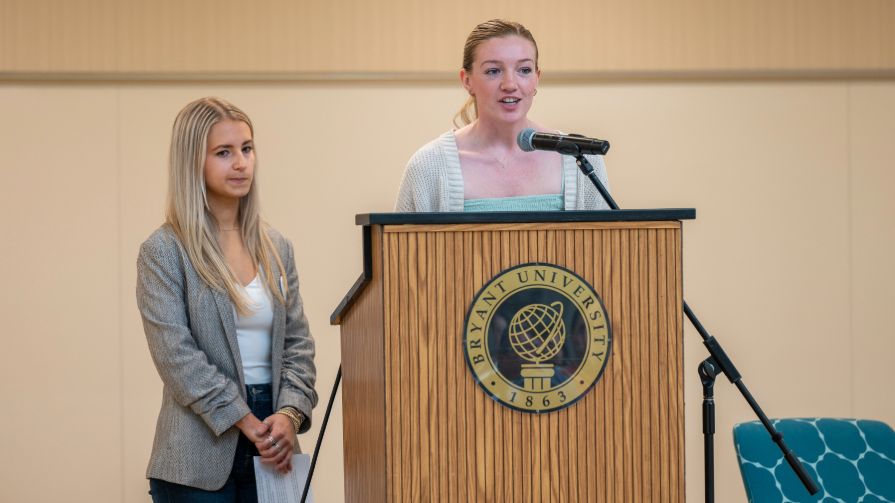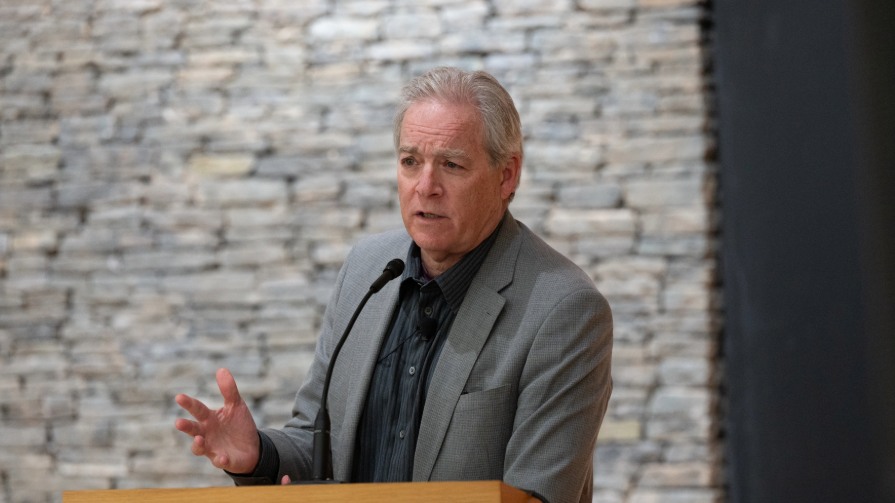SMITHFIELD, R.I. – A panel discussion on Rhode Island’s public finances attracted the attention of nearly 300 Rhode Islanders on May 27. It was the second in a series of three virtual panels titled “Pandemic Economics: What does it mean for Rhode Island?” Presented by Bryant University and the Rhode Island Foundation, the series was created to help Rhode Islanders better understand the economic impact of COVID-19 and how the state can move forward toward recovery and growth for all. The final panel, "COVID-19: Jobs and Sectoral Changes," will take place June 8 at 10 a.m. Information and registration here>>>
A full recording of the May 27th panel discussion is available here.
The distinguished panel of experts highlighted the financial and economic challenges the state faces, but also provided insights to help decision makers to respond to this unprecedented crisis. Panelists for this session included: Michael DiBiase, President and CEO, Rhode Island Public Expenditure Council; Paul Dion, Ph.D., Chief, Office of Revenue Analysis, Rhode Island Department of Revenue; Gary Sasse, Director, Bryant University Hassenfeld Institute for Public Leadership; Jeffrey Thompson, Ph.D., Economist and Vice President, New England Public Policy Center, Federal Reserve Bank of Boston.
Bryant University President Ronald K. Machtley served as host, and Capitol TV Director and 25-year broadcast news veteran Margie O’Brien Reed moderated the conversation that addressed some of the state’s most difficult and complex issues.
Though steep declines in revenue are predicted for 2020 and 2021, panelists agreed there is a path forward through the crisis that requires disciplined fiscal strategy, innovation, and a more diversified economy. This multi-faceted approach will enable the state to emerge from this crisis stronger and better prepared to grow and weather inevitable future challenges.
"The economy is not going to come back the same way. We need to prepare for the next set of challenges, not just the last set of challenges.”
The latest regional data presented by Boston Federal Reserve Economist and Vice President Jeffrey Thompson, Ph.D., showed that while Massachusetts and Connecticut have been hardest with the number of cases of COVID-19, Rhode Island’s unemployment insurance (UI) claims, as a share of the labor force, were the highest in the region and the fourth highest on any state.
Four out of six New England states are reliant on tourism, including Rhode Island.
“The initial shell shock has faded, but UI claims continue, with 1.8 million people across the region receiving UI insurance,” said Thompson, noting that four out of six New England states are reliant on tourism, including Rhode Island.
While the majority of initial UI claims in Rhode Island were from the services sector, including the hard-hit hospitality and tourism industry, “other parts of the service sector have been able to hold up,” according to Paul Dion, Ph.D., Chief of Rhode Island’s Office of Revenue Analysis.
“We need to leverage our higher education institutions better to fill out more of the professional, scientific and technical services sectors."
“We need to leverage our higher education institutions better to fill out more of the professional, scientific and technical services sectors. Right now, our services are very heavily weighted toward healthcare and education.” said Dion.
The $1.25 billion in federal stimulus money and budget reserve of about $200 million will help, but these short-term remedies won’t be enough to close the gap in the state’s $800 million budget deficit and longer-term budget challenges.
So, what will lead the RI economy out of this crisis and into a stronger position for the future?
“The obvious step is innovation.”
“The obvious step is innovation,” said Gary Sasse, Director of Bryant’s Hassenfeld Institute of Public Policy. “The first thing we have to do is make sure we have a productivity agenda…because productivity drives economic growth. And that determines the state’s standard of living, where we’re suffering right now. Only productive enterprises create jobs, create wealth.”
“The first thing we have to do is make sure we have a productivity agenda…because productivity drives economic growth."
“That kind of agenda is driven by relentlessly improving public education and by creating private-public sector situations where each sector plays a role,” Sasse added.
Dion emphasized the need for a diversified economy to reduce the reliance on just a few sectors or industries. “We could do better in engineering, design, science and technology,” he said. “If you have those folks in place, you get the innovation, you get the productivity.”
“Everyone’s going to have to find a different way to get things done,” said Michael DiBiase. “Every crisis presents some opportunity. The economy is not going to come back the same way. We need to prepare for the next set of challenges, not just the last set of challenges.”
DiBiase also highlighted the need for serious belt tightening, and that government will have to work more efficiently, reinventing the way things get done. “The private sector is doing that, and government is going to have to find a way to do it.”






